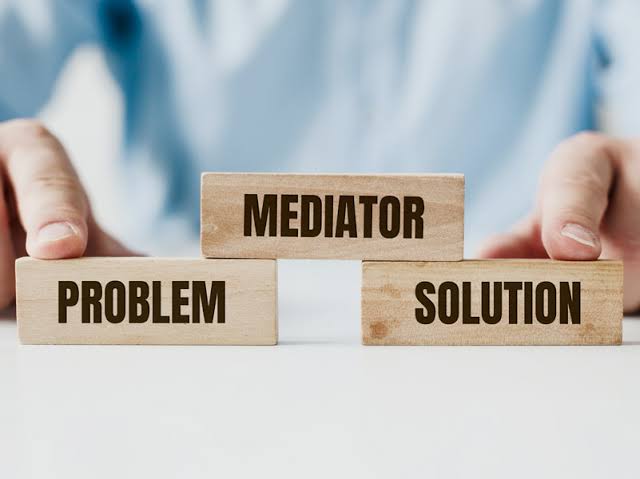DHRUTI KAPADIA, DOCTORATE STUDENT AND MEDIATOR
23rd Dec, 2023
Conflicts often take place across the globe. There are often deep marks left behind from which we see history repeat itself, and we see conflicts occurring frequently. With this, we can see how mediation plays a vital role as one of the mechanisms under the wheel of Alternate Dispute Resolution for resolving disputes. There are different fractions of conflict and conflict occurs at every level of life. It’s not only limited to individuals, but also organizations and has truly captured the world.
The stakeholders often find it challenging to apologize, say it at the workplace, or say it in their own house where spouses fight or parents fight with their children. When it comes to apologizing, there is the self-realization of self-improvisation, and it becomes a leg back option for most of the stakeholders due to which it leads to solid ego issues and many a times the relationships bitter up.
Only if, culturally, we adapt to admit mistakes and to let go of the past and move forward, we find resolution and peace. This process will heal the stakeholders, not only mentally but also emotionally, under which the overall personality of the stakeholders can change to be better human beings. Therefore, when it comes to the strategy of resolving disputes, the smooth process of accepting the wrong and curing it would come forward, and there would be better opportunities for the stakeholders in the global world to progress.
Also, if conflict management together is taught in school, where children start understanding how to handle their conflicts and to come to amicable solutions with their classmates or with their parents or their teachers, they will grow up to be better human beings with the vision to take care of a situation in the global world. They will develop the ability of resolving disputes which would bring effective solutions in a fast track mode and build good relationships not only with conflicting individuals but also with the public at large who would then consider them equipped enough to come up with innovative solutions which can bring a win-win situation for everyone around them.
The same generation holding out to be the nation’s future will always see themselves as good mediators if they are taught to resolve conflicts, from the very inception of their school days, which often is missed out. Hence, a progressive nation must visualize and ensure mediation requires no learning age. Still, it is essential to teach every individual how to actually mediate and also participate in peace-making agreements at all stages in life and to know the positive approaches on how to resolve their conflicts. Therefore, the mindset of our nation’s future should be cultivated in a positive approach way so that as they grow up as individuals, they will know how to negotiate, how to act and react with their society and also how to gain benefits by using strategic thinking instead dealing with life in a destructive manner.
Therefore, the training on how to mediate would be essential if one starts realizing that mediation is social healing; if one has entered into a conflict or has a big community of disputes, which could be emotionally draining, it could cause commercial loss and have a negative impact on society.
There are situations where mediation cannot be resorted to and the disputes are so intense that litigation is the only process and option for the parties to get justice. In such a situation, if an opportunity comes up to understand that there will be significant loss for long years and the parties will drain themselves, then with proper advisors and systemic strategies, there can be applied a strategy at some stage to introduce mediation which can open doors to an amicable solution.
There have been instances of family disputes, property disputes and commercial disputes which have built good, progressive and peaceful ways of dispute resolution by coming to a conclusive settlement through mediation, which can be enforceable by law. The prolonged battles of arguments have closed with amicable solutions, and not only that, with such excellent solutions that result in the stakeholder’s relationships being improved. This shows that mediation is the way for the parties to heal themselves socially and which allows them to rebuild the relationships damaged due to the conflict.
Many people do not seriously indulge in the process of mediation and also abuse the process to delay litigation. However, if the stakeholders genuinely want to resolve their dispute, mediation is the best method of Alternate Dispute Resolution as it will help them achieve commercial benefits, emotional benefits and mental peace as it will save time, money and energy. The experience of re-building relationships can crop out positively for future perspectives as well.
This social healing can help society stay connected. Also, whenever and wherever there is a war, there is always a possibility that conflict management is taken care of and peace is brought through the mediation process. Moreover, the intervention of peace-making bodies such as the United Nations can be helpful.
“World peace must develop from inner peace. Peace is not just the mere absence of violence. Peace is, I think, the manifestation of human compassion.” ― Dalai Lama XIV.
The peace building process truly starts when one starts realizing that violence is not the solution to anything, as destructive modes can only destroy human lives. There have been many wars due to conflicts related to resources, and to date, the impact of those wars remain. It is not only the entire nations’ conflict with global competition, but also individual conflicts, that need to be taken care of to achieve the ultimate solution of peace. It is imperative to realize that mediation plays a vital role in social healing of stakeholders and has the capability to achieve universal peace and abstinence from wars.







